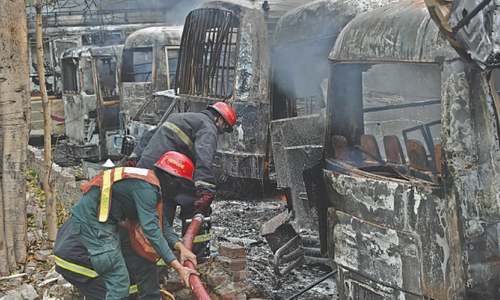NEW DELHI: A committee appointed by India’s top environmental court has blamed gross human failure and lack of basic safety norms for a gas leak in a South Korean-owned chemical factory this month that killed 12 people and sickened hundreds.
In its report, the committee said the tanks from which the gas leaked May 7 at the LG Polymers plant in Vishakhapatnam, a port city in Andhra Pradesh state, were outdated and lacked temperature sensors.
The report, issued on Thursday, said the response to the leak by workers at the factory was slow and the chemical company lacked experience in monitoring and maintaining tanks full of chemicals that sat idle for several weeks due to India’s nationwide coronavirus lockdown.
LG Polymers is owned by LG Chem Ltd., South Korea’s largest chemical company, which produces a range of industrial products, including petrochemicals, plastics and batteries used in electric vehicles. It is part of the family-owned LG Corp. conglomerate, which also has an electronics arm that globally sells smartphones, TVs and computers.
The gas that leaked from the plant was styrene, which is used to make plastic and rubber. Styrene gas is a neurotoxin and can immobilizs people within minutes of inhalation. It can be fatal at high concentrations.
Days after the mishap, the AP found out that the plant lacked environmental clearance before the leak.
LG Chem had maintained that LG Polymers India operated the plant while abiding environmental regulations and said it was closely monitoring efforts to handle the aftermath.
After the leak, police charged LG Polymers with culpable homicide, including negligence in handling toxic substances.
LG Chem began operating the plant in Vishakhapatnam in 1997. Its Indian operation is one of the leading manufacturers of polystyrene in the country. The Vishakhapatnam plant has around 300 workers.
Published in Dawn, June 1st, 2020

















































